The Software Report is delighted to announce The Top 25 Education Software CEOs of 2019. The following individuals represent excellence in the field of education technology and organizational leadership. Many of the awardees have demonstrated a deep commitment to the education and training sector and a passion for improving learning outcomes in local, global and corporate areas. Just as important, these CEOs are superb leaders who inspire their teams day in and day out and who can navigate the complex from executing market expansion strategies to undertaking multiple acquisition integrations.
Thank you to all those who submitted nominations on behalf of their CEO, your insights are invaluable in forming a clearer picture of an executive's capabilities.
Please join us in congratulating this year's awardees.

1. Walt MacDonald, ETS
With his ETS career spanning more than thirty years, Walt McDonald has made a lifelong commitment to his work at Educational Testing Services. Prior to becoming the company’s sixth CEO and president in 2014, McDonald had made his rounds within the organization – managing nearly every major program on offer.
In a Rutgers University commencement speech that he gave in 2018, he shared his thoughts on what made ETS a meaningful place to work. “ETS is a not-for-profit organization that only exists to help advance quality and equity in education. It’s an organization that does good things.”
ETS is a non-profit agency that provides research, assessment development, and testing administering and scoring services to their educational, business and government partners. McDonald started as a science assessment specialist in 1984 and played a role in redesigning the College Board’s Advanced Placement biology curriculum and exam before moving on to directing test development for the National Assessment of Educational Progress (NAEP). From there, it was a move into leadership roles that eventually led to his promotion to CEO.

2. Jamie Candee, Edmentum
Before she was CEO, Jamie Candee had built her career step by step as she took on various roles in the Edmentum organization. In 2005, she started her career with the ed-tech company in their human resources department. From there, she moved on to serve as Director of Sales and Service Effectiveness, followed by VP of Product Development, and then SVP of Sales and Marketing before she became Chief Revenue Officer in 2012.
Candee took some time away from the ed-tech organization to step into her first chief executive officer role with Questar Assessment, a provider of educational assessment programs. During her three-year tenure as CEO, she led efforts to develop IT training and mentorship programs for Minnesota students through her partnerships within the business community. In 2017, she returned to Edmentum to serve as CEO of the online education provider.
Candee is well known for both her drive and passion for education technology. In a 2017 interview, she shared some of her early experiences with working her way to the top. “I was 21 and told my manager (I was in banking at the time) that I wanted to run a company as CEO. He told me I was aiming too high. From that moment, I crafted my plan and relentlessly focused on achieving that outcome. To run an education technology company as CEO is my absolute dream.”

3. Matt Cooper, Skillshare
CEO Matt Cooper is proud to be part of Skillshare’s mission to create a strong, vibrant community of lifelong learners and the ed-tech company is well on its way with over 8 million users and over 20,000 plus classes. The company also has an enterprise offering, Skillshare for Teams, that provides immersive learning experiences for entire workforces. Matt joined Skillshare as its chief operating officer in 2016 and a short year later, moved into the CEO role.
In a recent interview, Cooper shared what motivated him to go to work every day. “Skillshare is making a very clear difference in people’s lives, and it also happens to be an amazing business. It’s really hard to find a company that can offer both a clear impact on the world and some really fun business challenges.”
Prior to joining Skillshare, Cooper spent several years working with companies that offered online freelancing marketplace services like Visually, where he was CEO, and oDesk (now UpWork), where he was VP of Operations. He also serves on the Board of Directors with YunoJuno and as Advisor/Board Observer with PowertoFly.
He graduated from Vanderbilt University with a BS in Economics and an MBA in Finance and Accounting.

4. Kevin Michielsen, Watermark
New York-based Taskstream welcomed Kevin Michielsen to their leadership team in 2016 when the company’s founder, Kevin Doyle, stepped down after 16 years. It was time for the next generation of leadership, Doyle said, and his replacement had come highly recommended. Michielsen came on as CEO at a crucial time for the company as they were about to undergo a series of changes, including their combination with competitor TK20 as well as others. In just under two years, Michielsen brought together six leading edtech companies – Taskstream, TK20, LiveText, Digital Measures, EvaluationKIT, and SmartCatalog – to form the largest provider of educational intelligence solutions worldwide. Today, Watermark serves a highly engaged client base of over 1,700 colleges and universities across the globe.
As his colleague, Lenny Izzo, Watermark’s Chief Client Officer, puts it, “Kevin has an incredible passion for education and supporting our partner institutions. We’re working to consolidate the number of systems institutions use to measure student learning and institutional effectiveness, so that we can empower our administrators, faculty, and student users with better connected data and the kinds of insights that drive meaningful improvements. Kevin’s attitude sets the example for the extraordinary culture of performance, hard work, and customer-first attitude that defines Watermark. In fact, he likes to say we’re obsessed with our customers…and we are!”
Michielsen has close to thirty years of experience in senior leadership roles within the telecom and tech sectors, ranging from his work with McKinsey & Company as an engagement manager; to his roles with LexisNexis as general manager and vice president of strategy and operations; and his most recent position as president of the Legal Media Division of ALM Media. He received an MBA in finance and strategy from the University of Michigan.

5. Bill Ballhaus, Blackboard
Bill Ballhaus is the CEO, president and chairman of Blackboard, a leading education technology company based out of Washington. He stepped into the senior leadership role in 2016 amidst challenges the company faced related to faltering customer confidence and increased market competition.
Despite the hurdles facing Blackboard, Ballhaus’ onboarding inspired confidence amongst those in the industry. Mark Huyoung, managing partner at NorthWind Partners, said the move was exciting and pointed to the CEO’s earlier successes with leading two other companies to acquisition. Providence Equity Partners, majority owners of the ed-tech company, expressed confidence that Ballhaus’ operational experience and passion for innovation would be an asset for them moving forward.
Ballhaus doesn’t describe himself as being motivated by order, sales, profit or cash. In an interview with Campus Technology, he spoke about his passion for helping his clients: “I’ve always been motivated through my career to do the best job possible in getting the benefits of innovation and technology into the hands of the users and excited about the impact and difference that makes.”
Prior to his position with Blackboard, Ballhaus spent the majority of his career leading global government service organizations like BAE Systems, Dyncorp International and SRA International. The focus of much his work was helping these agencies find tech solutions for their business problems. He has a PhD in aeronautics and astronautics from Stanford University and an MBA from UCLA.
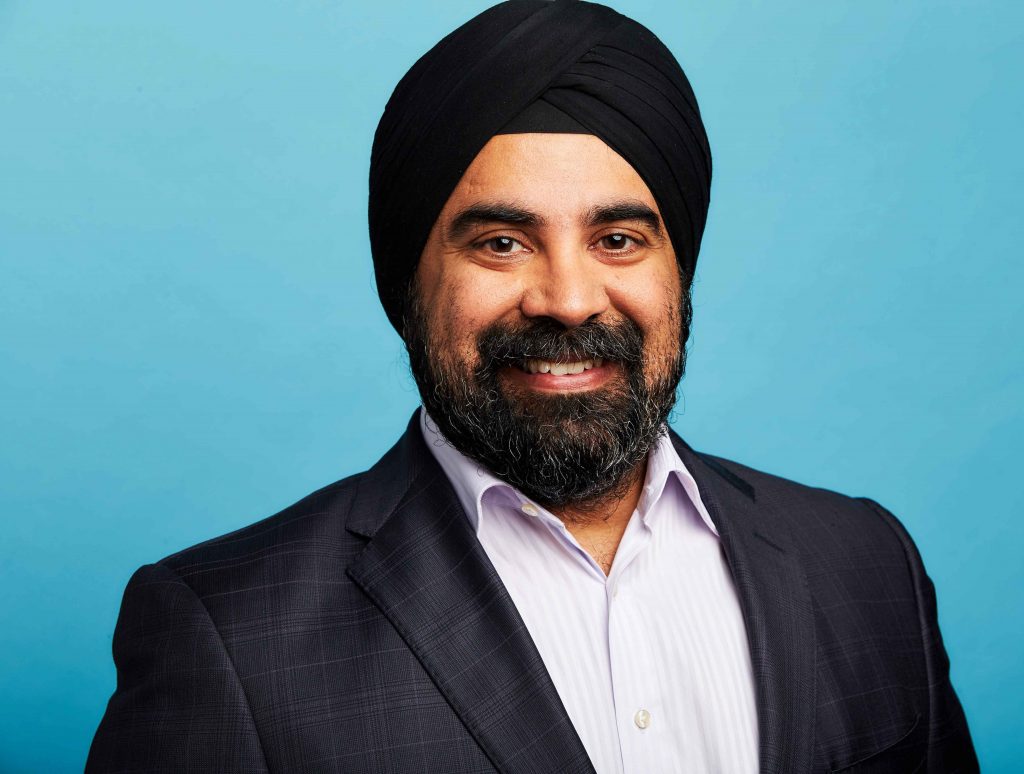
6. Hardeep Gulati, PowerSchool
As the CEO of PowerSchool, Hardeep Gulati wants to look beyond adding more digital tools to an educator’s workflow. He wants to bring together the diverse learning technologies available so that teachers can focus on the important work of helping their students learn. Gulati came to PowerSchool in 2015 with a wide breadth of experience encompassing strategy and product development with Oracle; to enterprise learning systems with SumTotal Systems where he was CEO; and enterprise integration processes with eBizAutomation.
Most recently, Gulati successfully led PowerSchool’s acquisition of PeopleAdmin—the eighth acquisition during his tenure as CEO. Additionally, he oversaw the expansion of talent from 1,000 to 2,000 employees. By building student information systems, learning management, classroom collaboration, assessment, analytics, and special education case management into one platform, PowerSchool offers the industry’s first fully wrap-around education experience.
“As technology continues to transform teaching and learning, it’s important that solutions are developed with a student-centric personalized approach to truly engage a student’s mind,” Gulati said. He received his computer science degree from the Indian Institute of Technology Bombay and earned his MBA from the University of Pennsylvania’s Wharton School.

7. Michael Hansen, Cengage Learning
Cengage is a global education and technology company that creates engaging learning experiences for students of all ages. In 2012, Michael Hansen came in as CEO and led the company’s transformation from print publisher to a market-leading provider of innovative learning tools and platforms.
Hansen reflected upon his career in a NorthofNeutral interview and attributes much of his success to his openness to new experiences. He is committed to continuously improving as a leader and challenges himself with the same questions he asks his teams to answer.
After graduating from Columbia University with his MBA, Hansen went to work with Boston Consulting Group in 1989. Over the next decade, he grew the firm’s very successful global e-commerce and media practices until leaving the organization in 2000. He went on to work with media and service tech company Proxicom before it was sold off in the aftermath of the dotcom crash.
Hansen also spent time in senior leadership roles with global media business, Bertelsmann, and healthcare information company, Reed Elsevier, where he led efforts to improve and expand their operations.
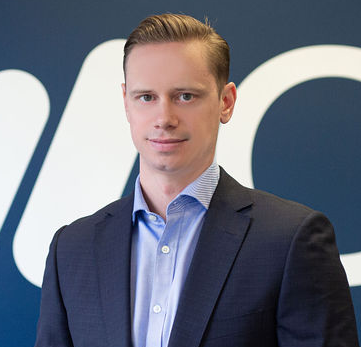
8. Tim Vipond, Corporate Finance Institute
Tim Vipond is an internet entrepreneur, financial analyst and ex-investment banker. He is currently the CEO of Corporate Finance Institute (CFI), where he is able to combine his experience in investment management with his passion for education to help CFI build the best training platform for financial professionals. Today, the company is a market-leading provider of online certifications in capital markets, finance, and accounting, having served over 250,000 students since its founding.
Prior to CFI, Vipond was the Vice President of corporate finance at Shoes.com, where he oversaw the completion of a $45 million, non-brokered private placement deal – the largest ever done by a Canadian e-commerce company. Before Shoes.com, he worked in strategy and corporate development for Newmont Goldcorp. Vipond has been recognized as one of Business in Vancouver’s Top 40 under 40 in 2015.
Vipond began his career in investment banking with RBC and CIBC. He graduated with a BA from Dartmouth University and an MBA from UBC Sauder School of Business in 2012. Vipond currently serves as a board director of Global Corporate Finance Society.
Top Education Software CEO: Tim Vipond of Corporate Finance Institute

9. Chuck Cohn, Varsity Tutors
In 2007, CEO Chuck Cohn started Varsity Tutors as a way to conveniently connect high-quality educators with busy learners. He did that by creating a live learning platform where students can connect with one of their 40,000 on-demand tutors for online instruction in almost any subject. The company’s students have accessed over 3 million hours of live instruction.
“The average student juggles half a dozen – or more – classes, a variety of extracurricular activities, sports commitments, and perhaps a part-time job. When educational resources are easily accessible via a smartphone or tablet, students can benefit tremendously,” Cohn said.
He started the company while he was still a student at Washington University (St. Luis) and, in 2011, decided to quit his ‘junior VC’ job with the now-defunct investment bank Bear Stearns and devote himself full-time to his business. He now has a staff of 500 people and has successfully raised $107 million in venture capital from TCV, Learn Capital, Chan Zuckerberg Initiative and others.
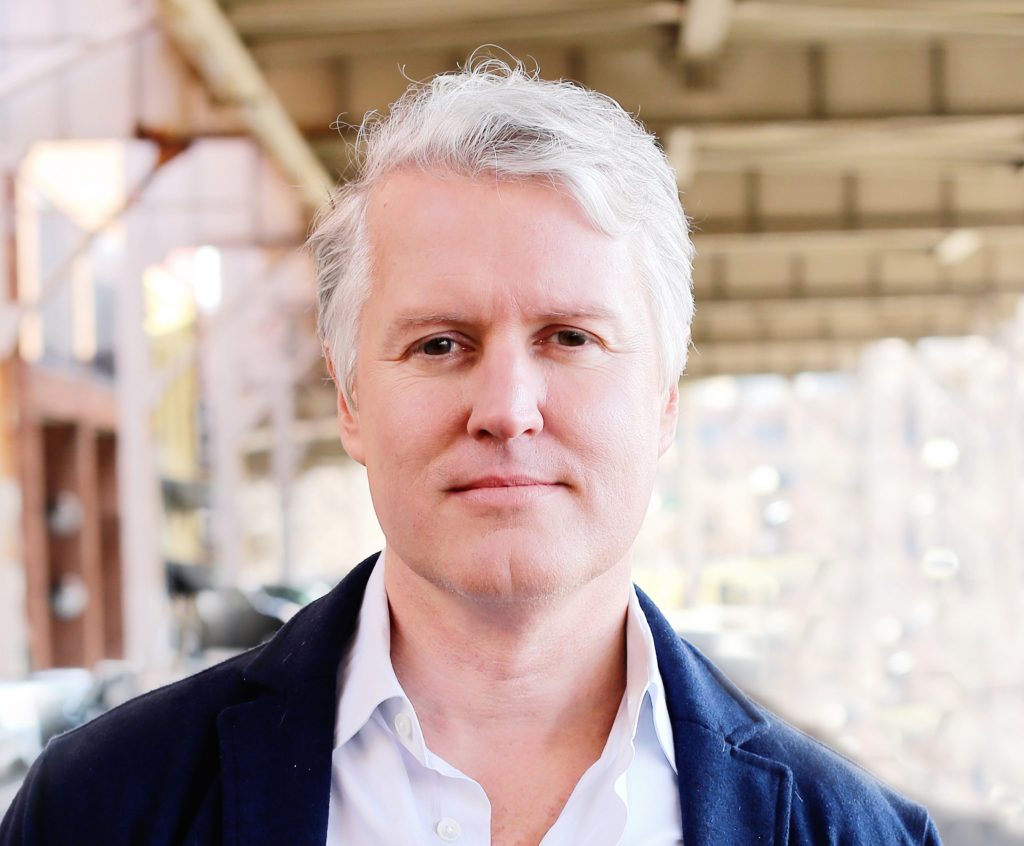
10. Tom Davidson, EVERFI
Inspired by his experiences as a Representative of the State Legislature of Maine, Tom Davidson founded his company EVERFI to help the education sector solve complex problems. Along with co-founders Jon Chapman and Ray Martinez, he started EVERFI out of his Georgetown apartment in 2008 and has grown it into an organization with over 4,300 corporate customers and financial institutions.
What sets Davidson’s EVERFI apart from other digital learning providers is his company’s mission to improve education accessibility to those normally left behind. EVERFI identifies certain educational gaps and leverages private sector backing to implement training initiatives to address these gaps. They offer programs on financial literacy; online safety and bullying; diversity and inclusion; health and wellness; STEM (science, tech, engineering & math) skills and career development. Davidson has forged corporate partnerships with some of the biggest household names in the US, including sports and entertainment giants NFL, NHL and MLB.
“We build and implement sophisticated learning platforms that bring social gaming and really interesting animation, video, simulations that bring issues to life. We build and implement in schools across the country, but it’s all paid for by the private sector, and that’s the big idea,” Davidson said of EVERFI’s purpose.
In addition to his work as a state legislator and a CEO, Davidson also experimented with being a venture capitalist. Ultimately, he felt his talents lay elsewhere but his work with EVERFI has been widely recognized, including being named as a Top 100 Entrepreneur Innovator and Builder by Goldman Sachs in 2012 and as Entrepreneur of the Year (Greater Washington) by Ernst and Young in 2016.

11. Aaron Skonnard, Pluralsight
Aaron Skonnard is both co-founder and CEO of Pluralsight, a learning platform provider for software developers, IT administrators and creative professionals from around the world. Along with three other founders, he grew the company from a small instructor-led training company before it experienced explosive growth as an online video training platform
In 2018, Skonnard’s online education platform boasted over 6,500 courses created by almost 1,400 authors. In addition, more than 70 percent of Fortune 500 companies held a Pluralsight enterprise license and customer billings surged up between 10 to 45 percent over that same year.
Skonnard attended Brigham Young University and is a self-taught computer-coder. He is also a prolific author having published several books, articles, and white papers on the topics of professional development, leadership, and technology.

12. Jeff Maggioncalda, Coursera
Like most successful people, Jeff Maggioncalda is passionate about lifelong learning. As CEO of Coursera, he has made learning into a very successful business. He joined the education technology company in June 2017 and is now charged with helping the organization grow to meet the increasing demand for quality online training options.
“Coursera is a special company with a vital purpose,” said Maggioncalda in a 2017 statement. “It has become a platform that millions around the world rely on to acquire new skills and knowledge they need to thrive in a world of accelerating change.”
Maggioncalda received his MBA from Stanford University in 1996 and spent the majority of his career building Financial Engines, an online investment platform, from a one-man-shop into a massive organization that has served millions of people. He also serves as a board member for the Silicon Valley Bank.

13. Richard Spires, Learning Tree
With over thirty years’ experience in the government services tech sector, Richard Spires left the public sector in 2015 to join Learning Tree, a global IT training provider, as their CEO. Under his leadership, Learning Tree launched their new enterprise-focused ‘learning ecosystem’ – a suite of scalable products and services designed to help keep workforces up-to-date with changing demands. Learning Tree has also been busy building out their blockchain and AI course offerings and was recognized as a leading training provider in IT and cybersecurity certification by ISACA in 2017.
Prior to his work with the ed-tech company, Spires served as both CIO for Homeland Security and Deputy Commissioner with the Internal Revenue Service. He also serves on several boards, including Palo Alto Networks’ Public Sector Advisory Board and Rate Reset’s board of directors. Spires received his MS in electrical and computer engineering from George Washington University and his BS in electrical engineering from the University of Cincinnati.

14. Patrick Connolly, Follett
Experienced executive Patrick Connolly was selected to join Follett’s team as CEO in 2015. In his role, he is responsible for the strategic direction, execution and financial performance of the $3.4 billion organization. Connolly has a strong reputation for meeting objectives and exceeding shareholder expectations built upon his almost three decades of leadership experience.
He most recently served as CEO of Schools & Universities Worldwide, Sodexo’s global business unit responsible for supporting K-12 schools and universities in over 30 countries. Follett’s chairman, Todd Litzsinger, offered his thoughts on Connolly’s appointment to Follett’s top spot, stating, “Pat’s experience, leadership style and understanding of education make him the ideal choice to…. lead Follett into the future. Pat is well-known for his ability to connect with and engage the teams he leads, and he has a strong track record of driving business growth and positive financial outcomes.”
Follett has been an established partner in education for over 140 years, serving the needs of K-12 schools, districts, and college campuses since they opened their very first used book store in 1873. Today, they are one of the largest providers of education technology, services, print and digital content in the country.
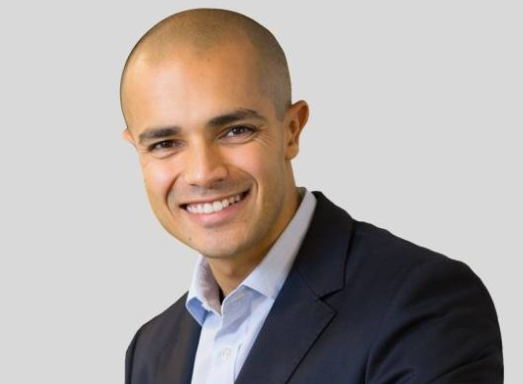
15. Andres Moreno, Open English
In 2007, Andres Moreno started an online language school that targeted Spanish-speakers in the Americas called Open English. In little more than a decade, Moreno has grown his internet-based English business into the leading instruction platform in Latin America. Since their founding, over 600,000 students from 20 countries have enrolled in OE programs. More recently, Moreno has successfully raised $120 million in venture capital to fund its expansion into other countries.
Having grown up in eight countries spread across three continents, Moreno has been a student of language since the beginning. In the process of teaching himself four languages, he developed a passion for it and wanted to build a business helping others to do the same thing. His first venture into the market was a brick and mortar school called Optimal English but after running the program for a few years, he realized the future would be online.
In addition to his English-related business efforts, Moreno also founded Next U, a learning platform for tech skills, that was eventually acquired by Open English in 2015. In addition, he was a founding board member for Endeavor, an accelerator for high-impact entrepreneurs.

16. Andrew Grauer, Course Hero
Andrew Grauer was thinking about collaboration when he started Course Hero in 2006. Originally launched as a way for students to share lecture notes, it was a fix for students who had to miss a class or needed more information on a key concept. Today, the platform has expanded their offerings to include study guides, class notes, past course exams, flash cards, live tutoring services and supplementary courses – mostly for college students. Students from 4,550 participating schools can sign up for a subscription to access these resources or upload their own content for a free pass.
Course Hero has been Grauere’s labor of love since he started the company while completing his undergraduate at Cornell University. He is also the president of Cardinal Scholars which has since been fully integrated into Course Hero’s tutoring services. Of his 13 years that he has dedicated to his online business, he had this to say: “It takes a long time to create something really valuable,” he says. “A lot of people think you can have rapid growth so fast, but I think of this as a decade of work.”

17. Paul Krause, eCornell
Paul Krause was not new to the rapidly growing ed-tech market when he came onboard as eCornell’s CEO in 2014. In addition to being a Cornell alumnus after graduating with a BS in business management in 1991, Krause spent fourteen years leading online corporate training company Element K. In that time, he grew the organization into the second largest corporate e-learning company in the world before it was acquired by Skillsoft in 2011. He also co-founded Matrix Insights – a digital e-learning platform that offers personalized leadership development – in 2012.
“With the creation of eCornell in 2000, Cornell was among the first… [of] its peer to deliver online learning programs,” Krause said of his transition to the Ithaca-based business. “I am excited by the opportunity to expand eCornell’s innovative online programs and bring high quality educational experiences to more people.”
eCornell, Cornell University’s wholly-owned online education company, delivers over 150 online professional and executive development programs to organizations around the world. It has enrolled 75,000 working professionals into nearly 250,000 courses spanning more than 200 countries since their beginning.

18. John Borgerding, Accruent
While there are many tech-options for transforming the learning experience, few probably give more than a passing thought to the managing of physical spaces where most of that education occurs. As CEO of Accruent, John Borgerding leads an organization that is dedicated to managing facilities administration, room and resource scheduling, and project planning so educators don’t have to.
Borgerding came onboard with Accruent in 2016 after the company was acquired by California private equity firm Genstar Capital. Since starting with the company, he has overseen an impressive 10 acquisitions and has made several contributions to product innovation, driving growth and accelerating expansion into new international markets.
Borgerding has worked with a number of tech companies and has gained significant experience with growing businesses internationally and leading companies through mergers and acquisitions. Prior to joining Accruent, he held senior leadership positions with software companies Ventex, Websense and Sumtotal Systems. He received his BA in political science from the University of Missouri-Columbia.

19. Salman Khan, Khan Academy
In 2004, Salman Khan was a busy senior analyst working his way up the ranks at Boston-based hedge fund. As part of a project to help his cousin with her math homework, he started uploading how-to videos on Youtube so that she could watch from her home in New Orleans. The idea soon caught on and Khan Academy was founded with the mission to provide free, high-quality education for anyone, anywhere. As of 2018, Khan’s videos had been watched 1.6 billion times by students around the world.
Before dedicating himself full-time to Khan Academy in 2008, Khan graduated from MIT with a BS in mathematics, computer science and a Master’s in engineering. In addition, he completed an MBA from Harvard Business School in 2003. Khan spent six years as a hedge fund manager.

20. John Fallon, Pearson
When John Fallon became CEO of Pearson in 2013, he knew the future of education lay with outcomes-based measurements and tech-driven learning delivery. He knew it was important to move beyond the traditional study programs and put into place aggressive sales targets for their online and digital services.
“What makes this much more doable now than it has ever been before is the application of technology and the capacity to transform the productivity of education around the world,” Fallon said in a 2013 interview.
Fallon’s predictions have come true for both Pearson and the education industry. Most recently, Pearson announced their ‘digital first’ movement – they will release all their titles in the US college market in digital form first. They also shared that 62 percent of the company’s revenues come from digital and digital enabled products and services.
Fallon has spent the majority of his career with Pearson, coming onboard as their director of communications in 1997 before moving his way up the ranks as president and then CEO. Additionally, he worked as a director of corporate affairs with Powergen PLC and also held senior public policy and communications roles with the UK government.

21. Kevin Johnson, Udemy
As CEO of digital course platform Udemy, Kevin Johnson is at the forefront of a digital movement to upskill the American worker. He comes to the position with significant experience in the software industry, including nine years as CEO of EBates, an online rewards shopping program used across the world. During that time, he grew the business forty-fold, led the company through its IPO and eventually sold it to Rakuten for $1 billion.
A Udemy board member shared his opinion on what made Johnson a strong candidate as a CEO: “Kevin is a veteran leader who knows how to scale a fast-moving marketplace business with customers and business around the world.”
Kevin also served as served as president and general manager with Acxiom Digital, a marketing technology company, and as a consultant with Boston Consulting Group. He obtained his BA in english and political economy in 1988 and his MBA from Stanford University in 1994.
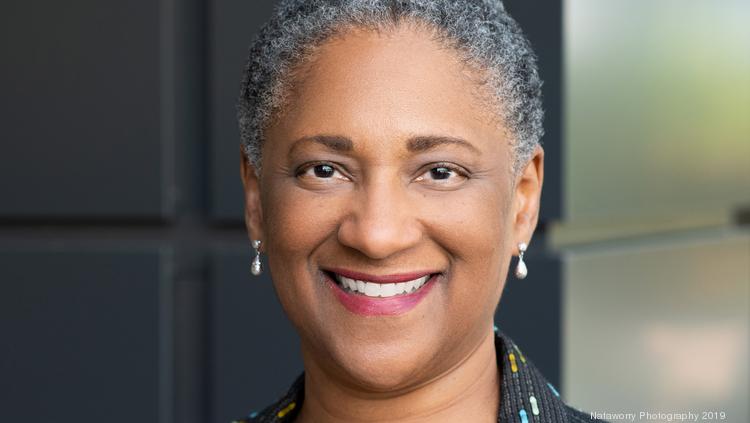
22. Jessie Woolley-Wilson, DreamBox Learning
Jessie Woolley-Wilson is CEO and President of Dreambox Learning, an innovative software service that provides elementary mathematics education via its intelligent adaptive learning platform. She joined the ed-tech organization in 2010 and soon after, they began partnering with schools to offer their programs.
Woolley-Wilson has also held senior leadership positions with Blackboard’s K-12 group and Leapfrog Enterprises. Earlier in her career, she served as vice president of marketing, sales and business development with MyRoad.com/Collegeboard.com. She has been recognized for her work as a two-time recipient of the EdTech Digest EdTech Leadership Award. Forbes also named her as one of their “Impact 15” for her commitment to change in education.
Woolley-Wilson graduated with an MBA from Harvard University and a BA from the University of Virginia.

23. Scott Glinski, Skyward
Scott Glinski has spent three decades helping Skyward become a market leader in the educational software sector. He started with Skyward’s IT department in 1987 before moving to St. Cloud, Minnesota to help the company open their first branch office. He eventually became president in 2008.
As president, he oversaw everyday operations for all departments and led the growth of the company while cultivating an empowered workforce. According to Skyward’s 2018 announcement of Glinski’s new role as CEO, “his vision for product development, support, and internal culture have been at the center of many significant contributions to the company.”
Glinski officially started as Skyward’s chief executive in January 2019. “I have seen firsthand how the work we do contributes to education and I look forward to finding new ways to bring a better experience to our customers,” Glinski said. “I am ready to set our sights on the future. This is an exciting time, and the best is yet to come for our Skyward family.”
The company provides a suite of administrative software solutions that are used by more than 2,000 agencies worldwide.

24. Luis von Ahn, Duolingo
Luis von Ahn started Duolingo with a mission to make education accessible to everyone – regardless of financial resources. In 2009, the Carnegie Mellon University professor started Duolingo as a project to provide users with free access to online English training. By the time he and his co-founders were ready to launch a private beta version in 2011, DuoLingo had over 300,000 student-hopefuls on their waitlist.
“Particularly in poor countries, education is just really broken,” he explained. “People who have money can buy themselves the best education in the world and people who don’t barely learn how to read and write, and because of that they never make money.”
Long before the DuoLingo days, von Ahn was an accomplished educator and entrepreneur. As a PhD student and eventually a professor at Carnegie Mellon University, he co-developed the popular CAPTCHA password-protecting, bot-prevention tool and another app that helps digitize books and sold them to Google.
He subsequently took a position with Google but decided to leave after only a few years to pursue his passion for transforming education. Von Ahn chose to focus on language learning because he felt this was the best way to reach the people who needed it the most. “To put it into perspective, there are 1.2 billion people across the world who are learning a foreign language, and about 800 million are learning English in order to get out of poverty.
Von Ahn became CEO of DuoLingo after they formally launched in 2011. They have over 150 million users worldwide and have raised $108 million in funding to help them expand.

25. Jeremy Friedman, Schoology
Jeremy Friedman is Co-founder and CEO of Schoology, an online learning, classroom coordination and social networking platform that brings together educators, students and families in a collaborative education environment.
Friedman was a freshman at Washington University when he met his two other co-founders and came up with the idea of a “web-based learning management” system that drew inspiration from social networking sites for their interactive interface meant to engage learners in new ways. They began working in earnest on the project in their final year under the direction of Clifford Holekamp, a senior lecturer with Olin Business School.
He graduated with a BA in economics and computer science and devoted himself to Schoology as their CEO in 2009. Friedman and his co-founders have successfully raised $57 million in funding to date. Friedman still runs Schoology with his two co-founders and has recently added a VP of Sales to their growing team. They support more than 20 million educators, administrators, students and parents from over 60,000 schools and post-secondary institutions around the world.
























